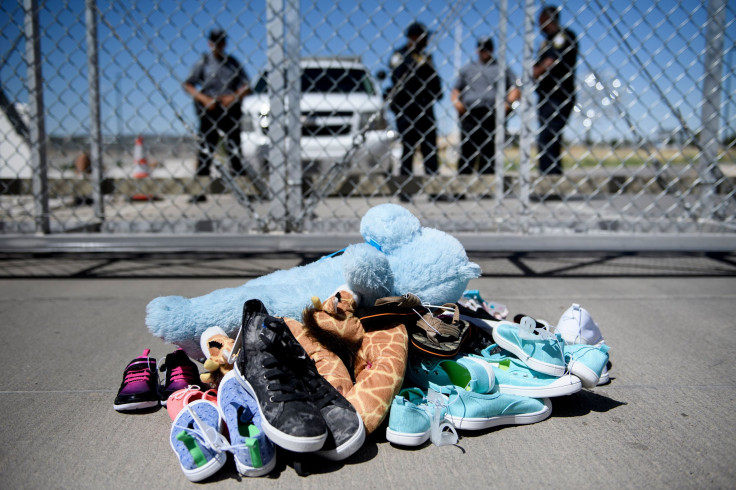Immigration News: Supreme Court Lifts Orders Blocking Rules Making It Harder To Enter, Stay In US

KEY POINTS
- U.S. District Judge George B. Daniels issued a nationwide injunction blocking the rules.
- The rules outline positive and negative factors to be considered by immigration officials in deciding whether someone can be allowed into the U.S.
- 19 states and the District of Columbia filed suit against the rules
Update: 4:54 p.m. EST
Rep. Alexandria Ocasio-Cortez, D-N.Y., called the Supreme Court decision shameful.
"American shouldn't have a wealth test for admission," she tweeted.
This is shameful. America shouldn’t have a wealth test for admission. It’s a place where millions of people are descendants of immigrants who came w nothing & made a life.
— Alexandria Ocasio-Cortez (@AOC) January 27, 2020
The American Dream isn’t a private club with a cover charge - it’s the possibility of remaking your future. https://t.co/qKm7BuUhXI
Original story
The U.S. Supreme Court on Monday lifted a court order preventing the Trump administration from imposing rules designed to deny immigrants admission to the U.S. or residency if they might use public assistance programs.
U.S. District Judge George B. Daniels in New York issued an order to block implementation of the new rules proposed in October, which establish new criteria for classifying someone as a public charge, which would make the individual ineligible for a green card or path to citizenship.
In writing an opinion concurring with the decision to vacate the order, Justice Neil Gorsuch challenged Daniels’ right to issue a nationwide injunction.
“Injunctions like these thus raise serious questions about the scope of courts’ equitable power,” Gorsuch wrote, adding, “Universal injunctions have little basis in traditional equitable practice.”
The rules outline positive and negative factors to be considered by immigration officials in deciding green card applications. Among the negative factors are unemployment, lack of fluency in English and dropping out of high school. An applicant’s use of such services as Medicaid or food stamps would be suspect.
Opponents of the rules say they punish legal immigrants in need of help and would overburden emergency healthcare facilities as well as shift costs to state and local governments, businesses, hospitals and food banks.
The administration said it is just trying to make sure immigrants can cover their own expenses to avoid beconing a burden on taxpayers.
Daniels called the rules “repugnant to the American dream.”
Two other courts – in California and Washington state – also ruled against the administration plans, calling them “arbitrary” and a way to “undermine, rather than promote, the stated goal of achieving self-sufficiency,” and issued their own orders, which subsequently were overturned by appellate courts.
Suits against the rules also were filed by Maine, Oregon, Pennsylvania, Virginia, Colorado, Delaware, Hawaii, Illinois, Maryland, Massachusetts, Michigan, Minnesota, Nevada, New Jersey, New Mexico, Rhode Island and the District of Columbia.
© Copyright IBTimes 2024. All rights reserved.





















